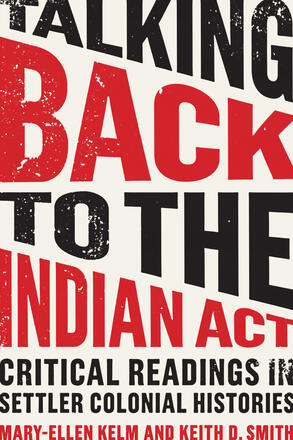
Talking Back to the Indian Act
Critical Readings in Settler Colonial Histories
La description
Talking Back to the Indian Act is a comprehensive “how-to” guide for engaging with primary source documents. The intent of the book is to encourage readers to develop the skills necessary to converse with primary sources in more refined and profound ways. As a piece of legislation that is central to Canada’s relationship with Indigenous peoples and communities, and one that has undergone many amendments, the Indian Act is uniquely positioned to act as a vehicle for this kind of focused reading.
Through an analysis of thirty-five sources pertaining to the Indian Act—addressing governance, gender, enfranchisement, and land—the authors provide readers with a much better understanding of this pivotal piece of legislation, as well as insight into the dynamics involved in its creation and maintenance.
Reviews
"Written in the first person, interwoven with the professional parlance of history educators, fortified with primary-source evidence, and shored up with inquiry questions, maps, and a timeline, Talking Back to the Indian Act is not an unwieldy academic tome; rather, it speaks to all Canadians. With a bit of a nudge, it would be as comfortable on a coffee table as it would be in a course syllabus. "
- Connie Wyatt Anderson
"This collection will engage the mind in a critical reading of the complexity of the Indian Act’s storied past and ongoing present through the documents it contains. Talking Back to the Indian Act will also engage students and those willing to learn more about a key Canadian historical document. And it will help students, Canadians, and Indigenous people to more fully engage with the TRC’s calls for action by increasing knowledge of Canada’s Settler colonialism. "
- Karl Hele
"I would recommend Talking Back to the Indian Act to anyone interested in learning about the Indian Act – or in learning about the historical method. It is an easy read and I expect to see it not only in my classroom but on my summer vacation this year. "
- Daniel Sims